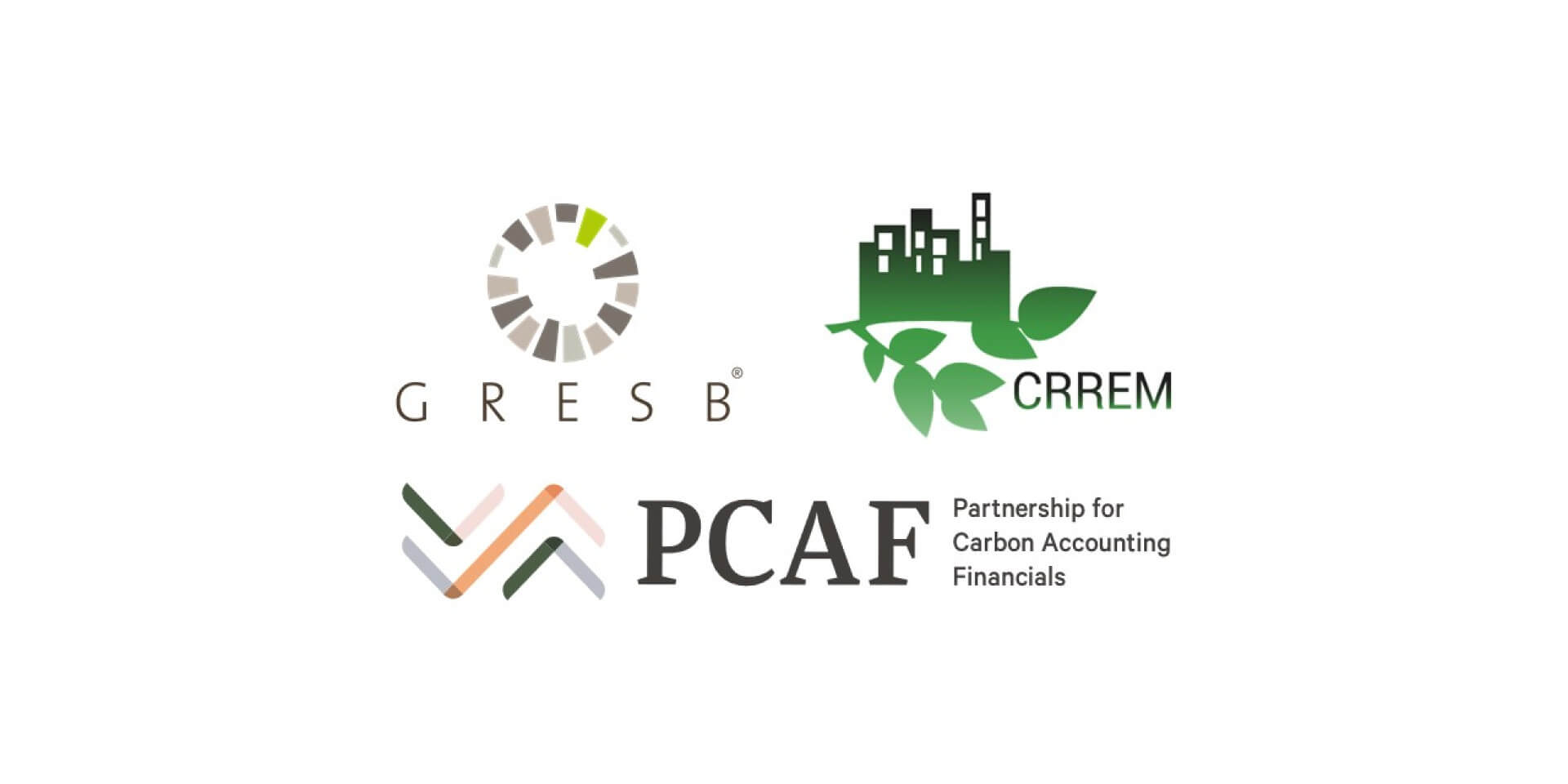
Amsterdam - April 21, 2021 - As the race to net zero gains momentum and regulatory bodies across the world scrutinize how the financial industry can influence the global push toward a more sustainable future, the ability to measure and understand financed emissions has never been more important. The trifecta of GRESB, PCAF (Partnership for Carbon Accounting Financials), and CRREM (Carbon Risk Real Estate Monitor) is perfectly positioned to give guidance to investors and banks to do just that for their real estate portfolios.
Over the course of 2021, the three bodies are partnering to harmonize their efforts and provide additional guidance to PCAF’s Global GHG Accounting and Reporting Standard for the Financial Industry, released in its first edition in November 2020. The additional guidance will focus on the specific requirements and needs of the real estate sector.
“As the stewards of ESG data and standards for real assets, the GRESB Foundation welcomes the opportunity to work with PCAF and CRREM to provide the financial industry with the standardization and tools it needs to effectively calculate and communicate on its financed emissions within the real estate sector.”
Patrick Kanters, Managing Director Global Real Assets, APG Asset Management, and member of the GRESB Interim Foundation Council
“This partnership with GRESB and CRREM is a clear example of the harmonization efforts that the Partnership for Carbon Accounting Financials (PCAF) has been working on. Alignment and harmonization with other initiatives is crucial to enable the financial sector to effectively measure, report, set targets and take actions towards net zero.”
Giel Linthorst, Executive Director, PCAF
“Whereas in the past investors/owners were seen as the driving force to track, analyse and reduce energy consumption within the real estate industry, we recognize now another force supporting decarbonization efforts. Banks and other financial institutions providing debt to the market are increasingly demanding clarity regarding financed emissions – impact on loan pricing and lending can be expected soon.”
Prof. Dr. Sven Bienert, Founder and Managing Director, IIÖ
The collaboration seeks to release its output this fall. The need for such guidance highlights the increasing importance of having a common framework across both investors and banks to measure and steer towards net-zero goals.
About GRESB
Mission-driven and investor-led, GRESB is the environmental, social and governance (ESG) benchmark for real assets. It works in collaboration with the industry to provide standardized and validated ESG data to the capital markets. The GRESB 2020 Real Estate benchmark covered more than 1,200 property companies, real estate investment trusts (REITs), funds, and developers. Its coverage for infrastructure includes 540 infrastructure funds and assets. Combined, GRESB represents over USD 4.5 trillion in real asset value. More than 100 institutional investors constituting over USD 22 trillion in AUM use GRESB data to monitor their investments, engage with their managers, and make decisions that lead to a more sustainable real asset industry. Following GRESB’s change in ownership, an independent, non-profit foundation – the GRESB Foundation – will be incorporated to own and govern the GRESB Standards upon which the Assessments are based.
Contact: gresb.com/contact
About PCAF
The Partnership for Carbon Accounting Financials (PCAF) is a global, industry-led initiative of financial institutions that work together to develop and implement a harmonized approach to assess and disclose the greenhouse gas (GHG) emissions associated with loans and investments, known as financed emissions. Currently, over 100 financial institutions have committed to the initiative. In November 2020, PCAF published the first-ever Global GHG Accounting and Reporting Standard for Financial Industry, which covers the financed emissions of loans and investments in commercial real estate, mortgages, and various other asset classes. PCAF collaborates with several organizations, institutions, and coalitions, including CDP, the Science-Based Targets initiative (SBTi), and the UN-convened Net-Zero Asset Owner Alliance (AOA).
Contact: info@carbonaccountingfinancials.com
About CRREM
The Carbon Risk Real Estate Monitor (CRREM) project, originally funded by the EU 2020 Horizon programme, has derived decarbonization pathways that translate the ambitions of the Paris Agreement (to limit global warming to 2°C with ambition to 1.5°C by the end of the century) into regionally- and property-type-specific trajectories against which real estate assets and portfolios can benchmark themselves. These pathways, while primarily alignment tools, may also be used as proxies for “transition risk” (in this case, the risk of assets being stranded due to regulatory incompliance or market obsolescence) insofar as the covered nations follow similar decarbonization strategies. CRREM’s scope now covers the majority of global real estate markets, and residential as well as commercial real estate. These pathways are finalized and publicly available.
Contact: julia.wein@iioe.at